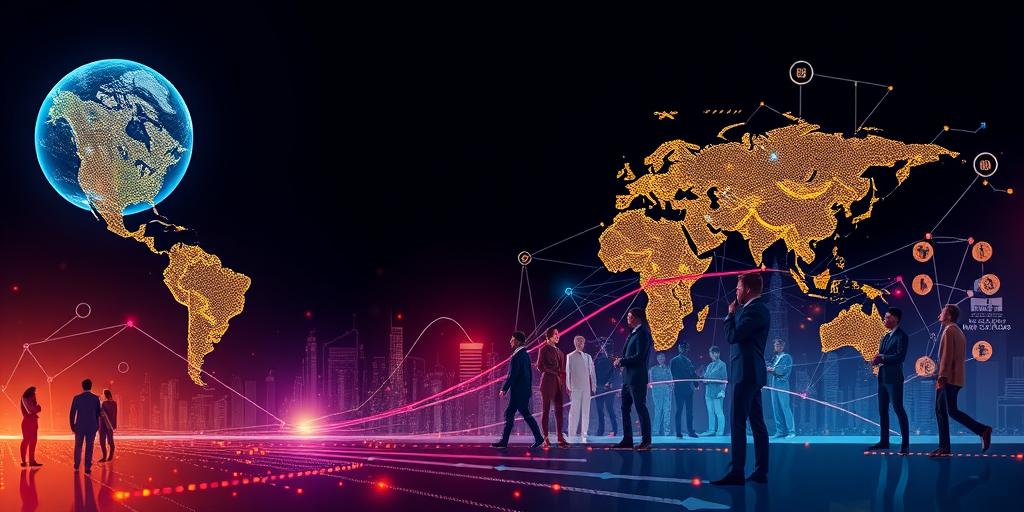Future Trends in International Diplomacy
International diplomacy is in constant flux, adapting to global shifts in power, technology, and societal values. Understanding these evolving trends is crucial for policymakers, academics, and anyone interested in international relations. This post will explore some of the key future trends shaping the landscape of international diplomacy.
1. The Rise of Digital Diplomacy
The internet and social media have revolutionized communication, and diplomacy is no exception. Digital diplomacy involves using online platforms to engage with foreign publics, disseminate information, and conduct negotiations. This trend is expected to grow, with diplomats increasingly leveraging tools like Twitter, Facebook, and LinkedIn to communicate directly with citizens and build relationships.
- Benefits: Increased transparency, broader reach, faster communication
- Challenges: Misinformation, cybersecurity threats, maintaining authenticity
2. Multilateralism and Global Governance
Many of the world's most pressing challenges, such as climate change, pandemics, and economic crises, require global cooperation. Multilateralism, the practice of coordinating policies among multiple countries, will remain a critical aspect of international diplomacy. International organizations like the United Nations, World Health Organization, and World Trade Organization will play increasingly important roles in addressing these issues.
- Key Areas: Climate action, global health security, trade regulation
- Future Focus: Strengthening international institutions, promoting inclusive governance
3. The Growing Importance of Non-State Actors
Traditionally, international diplomacy has been the domain of states. However, non-state actors like NGOs, multinational corporations, and civil society organizations are playing a more prominent role in shaping global affairs. These actors can influence policy, provide humanitarian assistance, and mediate conflicts. Diplomats must engage with these stakeholders to achieve their objectives effectively.
- Examples: Amnesty International, Doctors Without Borders, Google
- Strategies: Building partnerships, fostering dialogue, promoting shared interests
4. The Geopolitics of Technology
Technology is becoming a central battleground in international relations. Countries are competing to develop and control key technologies like artificial intelligence, quantum computing, and 5G networks. These technologies have significant implications for national security, economic competitiveness, and diplomatic influence. Diplomats must understand the geopolitical dimensions of technology and work to ensure that it is used responsibly.
- Focus Areas: Cybersecurity, data governance, technology standards
- Policy Goals: Promoting innovation, preventing misuse, fostering international cooperation
5. Focus on Sustainable Development
The Sustainable Development Goals (SDGs) adopted by the United Nations provide a framework for addressing global challenges like poverty, inequality, and environmental degradation. International diplomacy will increasingly focus on promoting sustainable development through policy coordination, resource mobilization, and knowledge sharing. Diplomats will need to work with a wide range of stakeholders to achieve the SDGs by 2030.
- Key SDGs: Climate action, quality education, gender equality
- Diplomatic Efforts: Securing funding, building partnerships, monitoring progress
6. Preventative Diplomacy and Conflict Resolution
Preventative diplomacy, which involves taking proactive measures to prevent conflicts from escalating, will become increasingly important. Diplomats will need to employ a range of tools, including mediation, negotiation, and early warning systems, to address potential sources of instability. Investing in conflict prevention can save lives, reduce human suffering, and promote long-term peace and security.
- Strategies: Fact-finding missions, dialogue facilitation, confidence-building measures
- Priority Areas: Fragile states, border disputes, ethnic tensions
Conclusion
The future of international diplomacy will be shaped by several interconnected trends. Digital technologies, multilateral cooperation, non-state actors, technology geopolitics, sustainable development, and conflict prevention will all play crucial roles. Diplomats who can adapt to these changes will be best positioned to advance their countries' interests and promote a more peaceful and prosperous world.









